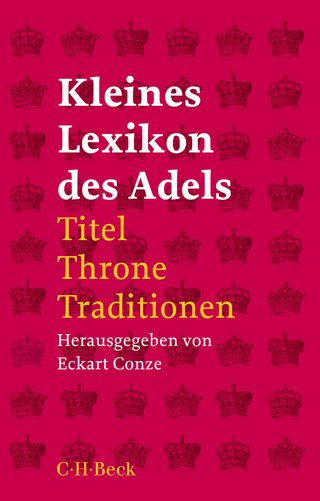
The Materials of Exchange between Britain and North East America, 1750-1900
Routledge (Verlag)
978-1-032-92567-7 (ISBN)
Taking a multidisciplinary approach to the complex cultural exchanges that took place between Britain and America from 1750 to 1900, The Materials of Exchange examines material, visual, and print culture alongside literature within a transatlantic context. The contributors trace the evolution of Anglo-American culture from its origins as a product of the British North Atlantic Empire through to its persistence in the post-Independence world of the nineteenth and early twentieth centuries. While transatlanticism is a well-established field in history and literary studies, this volume recognizes the wider diversity and interactions of transatlantic cultural production across material and visual cultures as well as literature. As such, while encompassing a range of fields and approaches within the humanities, the ten chapters are all concerned with understanding and interpreting the same Anglo-American culture within the same social contexts. The chapters integrate the literary with the material, offering alternative and provocative perspectives on topics ranging from the child-made book to representations of domestic slaves in literature, by way of history painting, travel writing, architecture and political plays. By focusing on cultural exchanges between Britain and the north-eastern maritime United States over nearly two centuries, the collection offers an in-depth study of Britain’s relationship with a single region of North America over an extended historic period. Contributors have resisted the temptation to prioritize the relationship between New England and England in particular by placing this association within the contexts of Atlantic exchanges with other northeastern states as well as with the South, the Caribbean and Scotland. Intended for researchers in literature, visual and material culture, this collection challenges single-subject boundaries by redefining transatlantic studies as the collective examination of the complex and interrelated cultural t
Daniel Maudlin is Associate Professor in Architectural History and Theory and Robin Peel is Associate Professor in English at the University of Plymouth, UK.
Introduction, Daniel Maudlin; transatlanticism Transatlanticism, Past, Present and Future: A Brief Overview, Paul Giles; Chapter 1 Bloodlines and Abortions: Heredity and Childhood in Hawthorne, Maeve Pearson; Chapter 2 Transatlantic Mobility: European Pleasure Meets American Ambivalence in Henry James’ The Europeans, AnaMaria Seglie; Chapter 3 Double Crossings: Black Yankees, Pauline Hopkins and the Atlantic World, Laura Doyle; Chapter 4 Bound for Boston: The Significance of New England as the Point of Entry for Visitors from Britain, Adam Hallett; Chapter 5 That Eternal Ghost of Trade: Anglo-American Market Culture and the Antebellum Stage Yankee, Matthew Pethers; Chapter 6 Over a Century of Shipwrecks: American Child Readers and Robinson Crusoe, Karen Sánchez-Eppler; Chapter 7 Chairs, Cradles, Cupboards and Dykes: ‘Scottishness’ in the Furniture of New England, David Jones; Chapter 8 Visualising Thanksgiving and Other Colonial Entanglements in New England, Stephanie Pratt; Chapter 9 The Most Marvellous of Foreign Countries: Americans and the Construction of the English Idea of Home, 1870–1910, Tanis Hinchcliffe; Chapter 10 Domestic Slavery and the Pursuit of Freedom in Old England and New England, Gretchen Holbrook Gerzina;
| Erscheinungsdatum | 16.10.2024 |
|---|---|
| Reihe/Serie | Ashgate Series in Nineteenth-Century Transatlantic Studies |
| Verlagsort | London |
| Sprache | englisch |
| Maße | 156 x 234 mm |
| Gewicht | 450 g |
| Themenwelt | Geschichte ► Teilgebiete der Geschichte ► Kulturgeschichte |
| Geisteswissenschaften ► Sprach- / Literaturwissenschaft ► Anglistik / Amerikanistik | |
| Geisteswissenschaften ► Sprach- / Literaturwissenschaft ► Literaturgeschichte | |
| Geisteswissenschaften ► Sprach- / Literaturwissenschaft ► Literaturwissenschaft | |
| ISBN-10 | 1-032-92567-1 / 1032925671 |
| ISBN-13 | 978-1-032-92567-7 / 9781032925677 |
| Zustand | Neuware |
| Haben Sie eine Frage zum Produkt? |
aus dem Bereich


